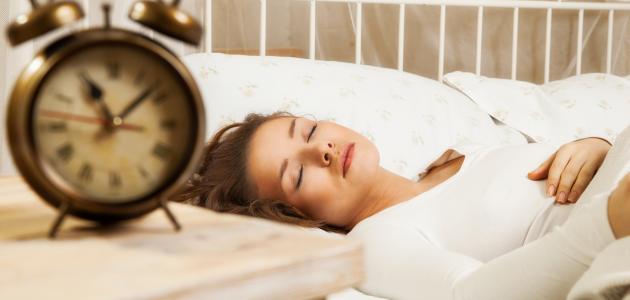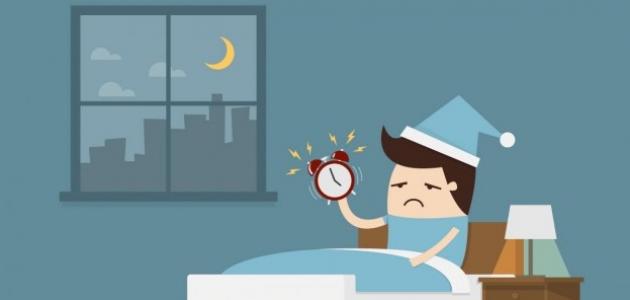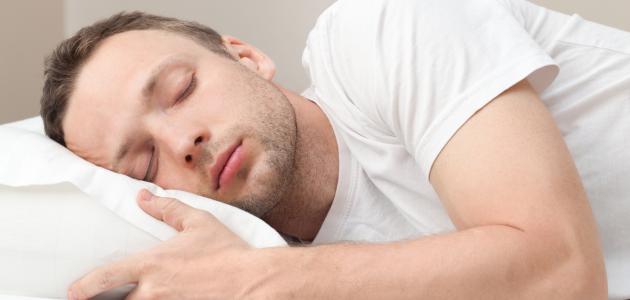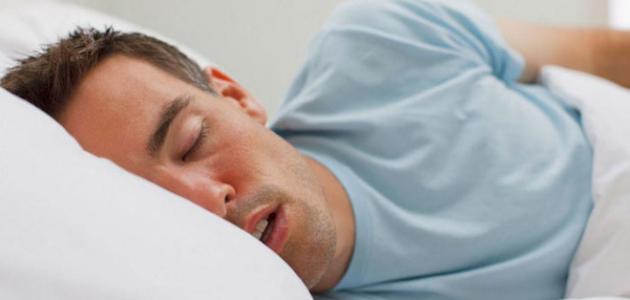Sleep
A person spends nearly a third of his day in sleep, and therefore it is considered an important part of the daily and life routine of a person, and it is also necessary for survival just like food and water, as it plays an important role in many vital functions in the body, and it has a great influence in all Body tissues and systems including the brain, heart, lungs , and immune system, for example; Sleep contributes to many brain functions , such as the way nerve cells communicate with each other and remove toxins that accumulate in the brain during waking. It is worth noting that there are many studies and research indicating that lack of sleep may increase the risk of developing some health disorders, including high blood pressure, cardiovascular disease, diabetes , depression, and obesity. [1]
In fact, sleep is described as a complex process in which several parts of the brain interact in cooperation to make this process successful, such as: the hypothalamus, which contains groups of neurons, which act as control centers that affect the sleep and wakefulness of a person. Information about direct exposure to light from the eye, in addition to the brainstem area , which participates with the hypothalamus in controlling sleep and wakefulness by producing a chemical in the brain called GABA to reduce the activity of the arousal centers in These two regions of the brain, as well as the pineal gland play a role in the process of sleep, as it produces the hormone melatonin, which helps sleep as soon as the lights go down. [1]
Way to sleep quickly
Many people suffer from difficulty entering the stage of deep sleep, and the incidence of insomnia, and the reason for this may be due either to a health problem or as a result of psychological and environmental influences. If health problems are excluded, there are many procedures that may help to sleep deeply and quickly. Of which: [2] [3]
- Ignoring the time: Being too focused on time may increase resentment of not sleeping and staying awake, and thus may cause difficulty sleeping.
- Establishing a consistent sleep and waking schedule: It is recommended to sleep and wake up at specific hours of the day, even on holidays, in order to avoid disturbances in the biological clock.
- Avoid eating foods and drinks before bedtime: It is advised to avoid heavy meals a few hours before bedtime, and to avoid drinks that contain high levels of caffeine before bedtime, and it is preferable to avoid them for at least five to six hours before the specified time to go to sleep.
- Preparing the bedroom environment: That is, the temperature of the bedroom is not very warm or cold, and it is recommended to equip a comfortable and suitable pillow and mattress.
- Avoid practicing any mental effort: by avoiding any effort that requires mental effort before bedtime, and moving towards practicing a quiet thing, such as reading a book or practicing meditation.
- Avoid strenuous exercise: and not be exposed to bright artificial light, such as; Exposure to television or computer screen light ; This is because exposure to light may signal to the brain that it is time to be awake.
- Avoid naps: Or take it early in the afternoon, and the duration of naps for adults should not exceed 20 minutes.
- Taking a hot bath: Use some relaxation techniques before bed, such as; Light yoga exercises that may relax the muscles. [4]
- Improving the daily diet: such as reducing sugar intake and eating foods that help sleep such as those that contain magnesium, such as; Legumes, seeds, vegetables with dark green leaves , wheat bran, almonds, and cashews, as magnesium is considered a natural sedative, and a lack of its level in the body causes many sleep problems, in addition to many health problems. [5]
The importance of good sleep
Sleep is of great importance for human health, as it has many benefits that include all physical, health, and psychological aspects, and they are explained as follows: [6] [7]
- Reduces obesity: People who sleep poorly and for insufficient time tend to gain weight gain, studies have indicated that sleep deprived people have an appetite for food more than others, and tend to eat many calories .
- Enhances various brain functions: Sleep is necessary for many brain functions, as we have already mentioned, as it improves problem-solving skills, enhances a person's awareness and better memory performance, and improves concentration and productivity. One study showed that sleeping for a short time can negatively affect some brain functions in a similar and similar effect to alcohol poisoning .
- Enhances physical performance: lack of sleep causes many problems in a person's physical ability, and is associated with poor performance during exercise, and on the contrary, good sleep improves athletic and physical abilities.
- Reduces Depression: Studies have found that people who suffer from sleep disorders, such as insomnia , and the interruption of breathing during sleep, get depressed at rates much higher than those who do not suffer from these disorders.
- Improves immune function: It has been found that lack of sleep may lead to a weakening of the immune system's function in the body, and in contrast, sleeping for eight hours a day improves the function of the immune system and fight infection in the body.
- Affects emotions: sleep affects different emotions and social interactions, and sleep deprivation may reduce the ability to social interaction and the ability to understand people's emotional expressions.
- Maintains heart health: Lack of sleep may lead to high blood pressure , which in turn can cause heart disease and stroke , and therefore it is recommended to get enough sleep, to maintain the health of the heart and blood vessels. [8]
References
- ^ A b " : Brain Basics: Understanding the Sleep" , Www.ninds.nih.gov , Retrieved 6-4-2019. Edited.
- ↑ "4 Simple Steps to Get You Back to Sleep Fast" , health.clevelandclinic.org , Retrieved 4-4-2019. Edited.
- ↑ "Sleep Deprivation and Deficiency" , www.nhlbi.nih.gov , Retrieved 6-4-2019. Edited.
- ↑ "How to get to sleep" , www.nhs.uk , Retrieved 7-4-2019. Edited.
- ↑ "14 Natural Remedies to Beat Insomnia" , www.verywellhealth.com , Retrieved 7-4-2019. Edited.
- ↑ "10 Reasons Why Good Sleep Is Important" , www.healthline.com , Retrieved 6-4-2019. Edited.
- ↑ "Importance of Sleep: Six reasons not to scrimp on sleep" , www.health.harvard.edu , Retrieved 4-4-2019. Edited.
- ↑ "Surprising Reasons to Get More Sleep" , www.webmd.com , Retrieved 6-4-2019. Edited.
















